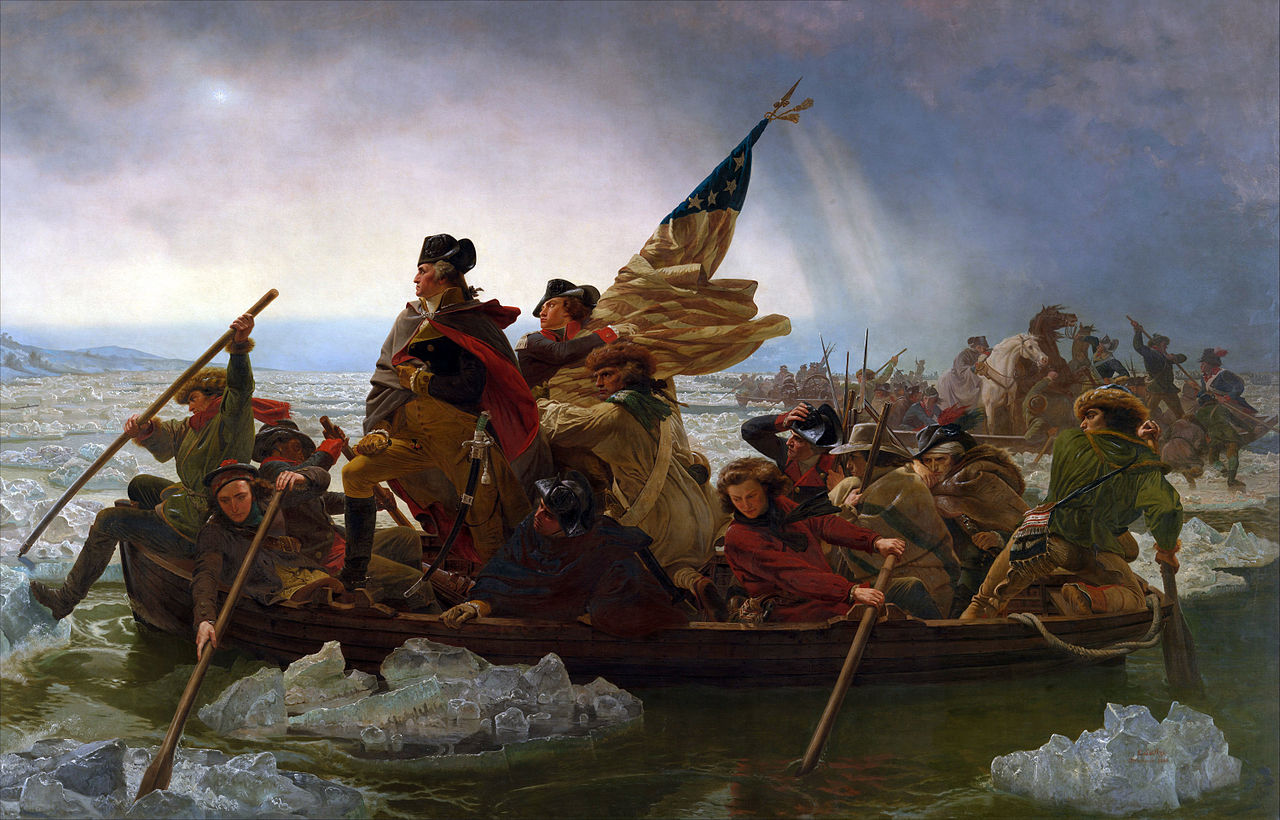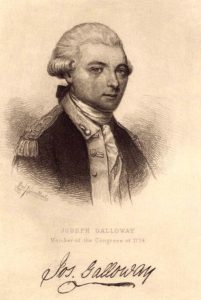Judgment was not kind in the aftermath of George Washington’s victories.
Bucks County was a divided community after George Washington crossed the Delaware River on Christmas night 1776 to turn the American Revolution in the rebels’ direction. The outcome hung in the balance for several years, inflaming tensions and pitting neighbors against neighbors, It was Loyalists versus Patriots.
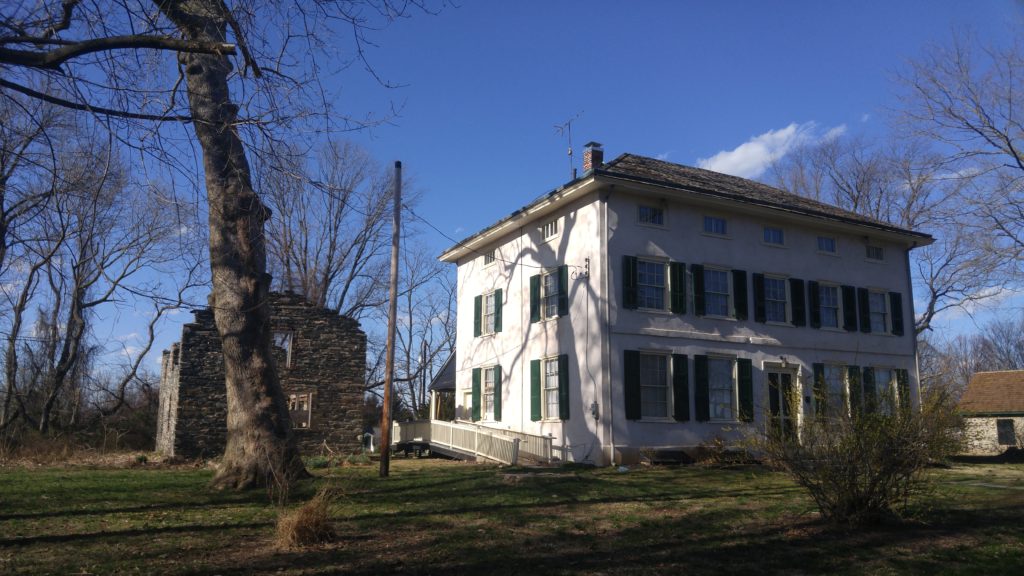
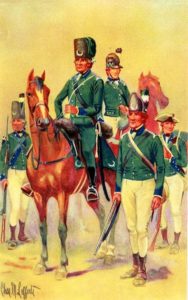
Many of the former joined the British army to put down the rebellion. Edward Jones raised a company
of cavalry from Hilltown and New Britain. Evan Thomas of Hilltown commanded soldiers in notorious Simcoe’s Rangers portrayed in the recent Netflix drama “Turn”. Bensalem’s Joseph Swift was a cavalry captain in the Pennsylvania Loyalists, Walter Willett of Southampton was a lieutenant of the British cavalry, and Thomas Sandford also of Southampton commanded Bucks County dragoons aligned with the British. Most prominent was Joseph Galloway who owned most of what today is Bensalem. He never took up arms but aided the British occupation of Philadelphia.
On the opposing side were the Patriots – local militias, Washington’s army and those pledged to the revolution. Many were skilled riflemen. The best were assigned to warships of the nascent Continental Navy. In the Battle of Delaware Bay on April 8, 1782, the sloop-of-war Hyder Ally engaged and captured the more powerful sloop HMS General Monk. Rifleman aboard Hyder Ally began picking off Monk sailors from distance. A biography by the widow of the Hyder Ally’s captain described what happened:
“One of these brave fellows called out, ‘Captain, do you see that fellow with the white hat?’ and firing as he spoke, Captain Barry saw the poor fellow with the white hat make a spring at least three feet from the deck, and fall to rise no more. ‘Captain,’ continued the marksman, ‘that’s the third fellow I’ve made hop.’ It was found that every man of the enemy who was killed by the small arms was shot in the breast or head, so true and deadly was the aim of the Bucks County riflemen.”
Back home in Bucks, Committees of Safety publicized the names of Loyalists, fined them and seized their property. Galloway was an early target, forcing him to flee to England to avoid being hung for treason. Others who had enlisted in the British army fled to Canada after the war. Under the state Confiscation Act of 1778, Galloway and major property owners lost their estates. Among them were Gilbert Hicks and Joseph Paxson of Middletown. John Ellwood and Andrew Allen of Bristol, Samuel Biles and Walter Willett of Southampton, Richard Swanwick, John Meredith and Owen Roberts of New Britain, Evan Thomas, Jonathan Jones and Edward Jones of Hilltown, Peter Perlies of Durham, and John Reid and John Overholtz of Tinicum. Reid surrendered an estate of 1,412 acres.
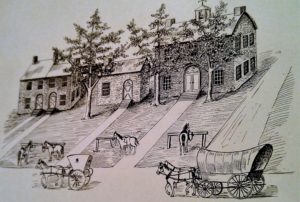
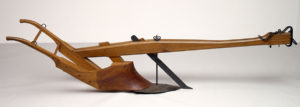
The war even imposed severe penalties on those who remained neutral including Quakers. Among them was Joseph Smith of Buckingham who was confined to prison in Newtown. There he whittled wood into models of an iron mold-board plow. A mold-board is the wooden part of a plow that lifts up and turns over soil cut by the iron blade. Smith threw some of the models over the wall of the jail where military officers became very interested and discussed the invention with Smith. Fortunately, the farmer outlived the war and produced the new plow with great success after Thomas Jefferson in 1788 popularized it.
Poor Thomas Watson, a tenant farmer from Buckingham, had a tougher row to plow during the war.
A devout Quaker, Watson harvested a good crop of hay in 1778. The grain had become exceedingly scarce through the winter due to detachments of Washington’s army encamped in Bucks and needing sustenance. Tom sold most of his crop to the army but retained one stack for his less fortunate neighbors. Tom’s landlord offered to buy the hay. Watson refused. He did offer to give the landlord a share without charging him when the stack was dispersed.
The landlord accused Watson of betraying the American Revolution and had him arrested and incarcerated in the Newtown jail to await trial. Brigadier Gen. Lord Stirling, who had served valiantly with George Washington in many early battles, presided over the farmer’s court martial. HE found Watson guilty and sentenced him to hang. Strenuous efforts by the community to obtain a pardon failed.
Stirling had every intention of carrying out the sentence. But he agreed to hear a final plea from Watson’s wife at the Newtown tavern where he was boarding. The tavern keeper, sympathetic to the Watsons, softened up Stirling’s mood with ale before the meeting. He listened intently to Mrs. Watson’s tearful, eloquent defense of her husband. Raising her to her feet, he calmed her. “Madam,” he began, “you have conquered, I must relent at the tears, and supplication of so noble and so good a woman as you. Your husband is saved.”
Sources include “The History of Bucks County, Pennsylvania: From the Discovery of the Delaware to the Present Time” by W.W.H. Davis published in 1905, and the David Library of the American Revolution off River Road in Washington Crossing.

